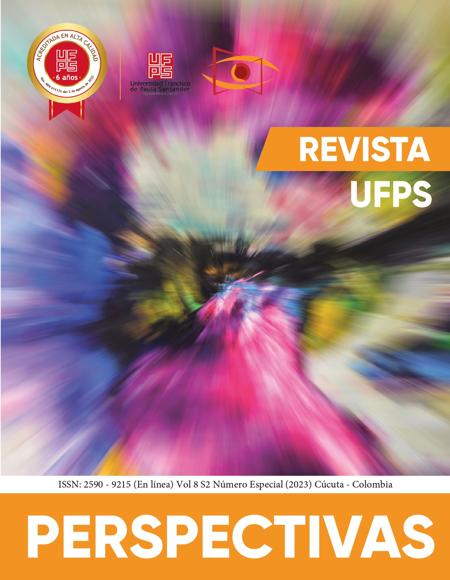Uncertainty in the work of joan carles mélich: rethinking ethics and Education
Incertidumbre en la obra de joan carles mélich: repensando la ética y la Educación
Main Article Content
One of the key concepts in the work of the Spanish philosopher Joan-Carles Mèlich is uncertainty, which has a wide spectrum of interpretations. The aim of this article is to understand the meanings that are present in the work of this author, referring precisely to this concept and how it is understood from the ethical and educational fields. The methodology was based on a qualitative model with an approach close to the documentary review. Among the main findings, it is noted that one of the main concerns of Joan-Carles Mèlich's work is to show how what we call the West is crossed by a metaphysical heritage, which has had repercussions in all areas of thought, as it has created absolutist visions of reality. Likewise, it becomes evident that the work of this contemporary thinker tends towards the need to transform this heritage through the resignification of the concept of uncertainty as a response to the existing stakes in absolutist narratives. In these logics, uncertainty becomes a valuable bet and a worthy bet to access new meanings and new configurations of the ethical and educational spheres. The challenge of education tends then to prevent the replication of totalitarianisms, as it exhorts to think about the mobility and finitude that dwells in the concept of uncertainty.
Downloads
Publication Facts
Reviewer profiles N/A
Author statements
- Academic society
- Universidad Francisco de Paula Santander
- Publisher
- Universidad Francisco de Paula Santander
Article Details
Agudelo Torres, J. F., Rojas Restrepo, F. S., y Ocampo Ruiz, E. (2019). Sobre el reconocimiento y la otredad en la escuela: una lectura desde Lévinas y Mélich. Perseitas, 8, 1–20. https://doi.org/10.21501/23461780.3502 DOI: https://doi.org/10.21501/23461780.3502
Arcos Lame, J. (2015). Hannah Arendt y la moral después de Eichmann en Jerusalén [Tesis de Maestría, Universidad Pontificia Bolivariana]. Repositorio Institucional- Universidad Pontificia Bolivariana. http://hdl.handle.net/20.500.11912/3035.
Arendt, H. (1998). Los orígenes del totalitarismo. Taurus.
Arendt, H. (2009). Eichamann en Jerusalén. DeBolsillo.
Assmann, J. (introducción de Duch, Ll.) (2014). Violencia y monoteísmo. Fragmenta.
Bárcena, F. (2000). El aprendizaje como acontecimiento ético: sobre las formas de aprender. Enrahonar: quaderns de filosofía, 31, 9-33. https://doi.org/10.5565/rev/enrahonar.406. DOI: https://doi.org/10.5565/rev/enrahonar.406
Bárcena, F. (2018). Maestros y discípulos. Anatomía de una relación. Teoría de la Educación. Revista Interuniversitaria, 30 (2), 73-108. http://dx.doi.org/10.14201/teoredu30273108. DOI: https://doi.org/10.14201/teoredu30273108
Bárcena, F., y Mélich, J-C. (2000). Educación como acontecimiento ético. Paidós.
Bernal, C. (2016). Metodología de la investigación. Pearson. https://es.scribd.com/document/519041631/Metodologia-de-La-Investigacion-Bernal-4-EDICION.
Camps, V. (2017). Breve historia de la Ética. RBA.
Chillón, A. (2010). La condición ambigua. Conversaciones con Lluís Duch. Herder.
Cobo, J. (2020). La paradójica realidad de Dios. Fragmenta.
Derrida, J. y Roudinesco, E. (2002). Y mañana, qué... Fondo de Cultura Económica.
Descartes, R. (2007). Discurso del Método y Meditaciones metafísicas. Austral.
Duch, L. (2008). Hombre, tradición y modernidad. En Ll. Duch, M. Lavaniegos, M. Capdevila, y B. Solares, Lluís Duch, antropología simbólica y corporeidad cotidiana. Centro Regional de Investigaciones Multidisciplinarias/Universidad Nacional Autónoma de México. http://bibliotecavirtual.clacso.org.ar/Mexico/crim-unam/20100429110200/SolaresDuch.pdf. DOI: https://doi.org/10.22201/crim.9786070281914e.2016
Duch, L. (2019). Vida cotidiana y velocidad. Herder.
Duch, Ll. y Mèlich, J-C. (2005). Escenarios de la corporeidad. Antropología de la vida cotidiana 2/1. Trotta.
Freud, S. (2013). La interpretación de los sueños. Akal.
Grondin, J. (2006). Introducción a la Metafísica. Herder.
Heidegger, M. (1995). Caminos del bosque, Alianza.
Hernández Sampieri, R., Fernández Collado, C., y Baptista Lucio, M. P. (2015). Metodología de la investigación. McGarwHill. https://www.uca.ac.cr/wp-content/uploads/2017/10/Investigacion.pdf
Jaramillo Ocampo, D.A., Orrego Noreña, J., Echeverri, L. (2017). La finitud incierta: ética y alteridad en el pensamiento filosófico de Joan-Carles Melich Sangrà. Centro Editorial Universidad Católica de Manizales. https://www.ucm.edu.co/la-finitud-incierta-etica-y-alteridad-en-el-pensamiento-filosofico-de-joan-carles-melich-sangra/.
Kant, I. (2005). Crítica de la Razón pura. Taurus. https://enriquedussel.com/txt/Textos_200_Obras/Aime_zapatistas/C.Razon_pura-Immanuel_Kant.pdf.
Kant, I. (2012). Fundamentación para una metafísica de las costumbres. Alianza.
Kundera, M. (1994). El arte de la novela. Tusquets.
Kundera, M. (2008). La insoportable levedad del ser. Tusquets.
Levi, P. (2021) Si esto es un hombre. Ariel
Lévinas, E. (1978). Totalidad e infinito. Ensayo sobre la exterioridad. Sígueme.
Mèlich, J-C. (1996). El texto como otro. Ars Brevis, 2, 269-278. https://raco.cat/index.php/ArsBrevis/article/view/93993.
Mèlich, J-C. (2002). Filosofía de la finitud 1°Ed. Herder.
Mèlich, J-C. (2004). La lección de Auschwitz. Herder.
Mèlich, J-C. (2005). La persistencia de la metamorfosis. Ensayo de una antropología pedagógica de la finitud. Revista Educación y Pedagogía, XVII (42), 11-27. https://revistas.udea.edu.co/index.php/revistaeyp/article/view/6038/5444
Mèlich, J-C. (2008). Antropología narrativa y educación. Teoría de la Educación. Revista Interuniversitaria, 20. 101-124. https://doi.org/10.14201/986. DOI: https://doi.org/10.14201/986
Mèlich, J-C. (2010a). El otro de sí mismo. Por una ética desde el cuerpo. UOC. https://es.scribd.com/document/425152684/El-Otro-de-Si-Mismo-Por-Una-Etica-Desde-El-Cuerpo-Melich-Joan-Carles.
Mèlich, J-C. (2010b). Ética de la compasión. Herder.
Mèlich, J-C. (2011). Introducción al pensamiento de Lluís Duch: el trabajo del símbolo. En J-C. Mèlich et al. (Ed.), Empalabrar el mundo. El pensamiento antropológico de Lluís Duch. Fragmenta.
Mèlich, J-C. (2012). Filosofía de la finitud 2°Ed. Herder. DOI: https://doi.org/10.2307/j.ctvt7x7d8
Mèlich, J-C. (2014a). Disimilaciones. Intento de pensar la educación desde Emmanuel Levinas. Anuario Colombiano de Fenomenología, VIII, 123-142.
Mèlich, J-C. (2014b). Lógica de la crueldad. Herder DOI: https://doi.org/10.2307/j.ctvt9k4pd
Mèlich, J-C. (2015). La lectura como plegaria. Fragmentos filosóficos I. Fragmenta.
Mèlich, J-C. (2016). La prosa de la vida. Fragmentos filosóficos II. Fragmenta.
Mèlich, J-C. (2019a). La religión del ateo. Fragmenta.
Mèlich, J-C. (2019b). La Sabiduría de lo incierto. Lectura y condición humana. Tusquets
Mèlich, J-C. (2021). La fragilidad del mundo. Ensayo sobre un tiempo precario. Tusquets.
Mèlich, J-C. (2022a). La experiencia de la pérdida. Ensayo de filosofía literaria I. Fragmenta.
Mèlich, J-C. (2022b). La condición vulnerable. Ensayo de filosofía literaria II. Fragmenta.
Mèlich, J-C. (prólogo de Moreta, I). (2018). Contra los absolutos. Conversaciones con Ignasi Moreta. Fragmenta.
Nietzsche, F. (2017). Así habló Zarathustra. Austral.
Niño, M. (2011). Metodología de la Investigación. De la U
Platón. (1982). La República. (En: R. Verneaux, Textos de los grandes filósofos: edad antigua) Herder.
Schopenhauer, A. (2009). Parerga y paralipomena. Escritos filosóficos sobre diversos temas. Valdemar.
Torralba, F. (2013). Los maestros de la sospecha. Marx, Nietzsche, Freud. Fragmenta.
Uribe García, J. A. (2015). Educación, ética y finitud. Una entrevista a Joan-Carles Mèlich. Uni-Pluriversidad, 15(1), 111https://doi.org/10.17533/udea.unipluri.23653








